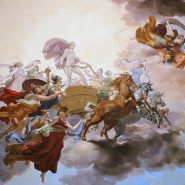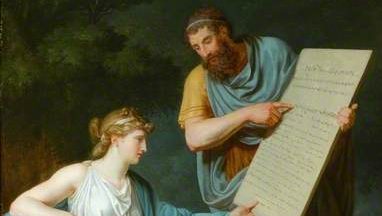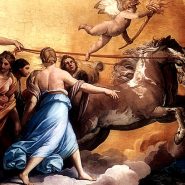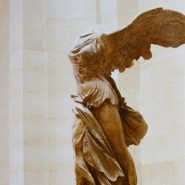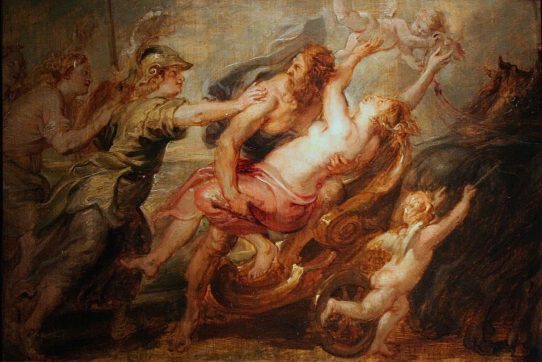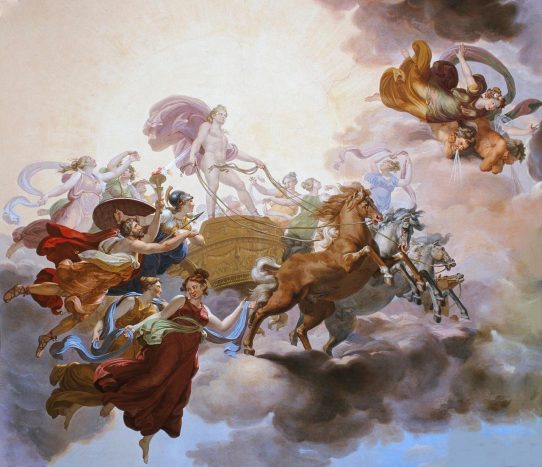Numa Pompilius, the second king of Rome, succeeded Romulus at a time when the young city was still raw from conquest and bloodshed. Where Romulus had founded Rome through war and ambition, Numa gave it form through peace and piety.
His reign, stretching from roughly 715 to 673 BCE, became synonymous with wisdom, justice, and devotion to the gods. In Roman tradition, Numa stands as the archetype of the wise ruler — the king who turned a city of warriors into a people of laws.
A Reluctant King
According to legend, Numa was a Sabine by birth, known for his virtue and learning. After Romulus’ mysterious disappearance, the Romans sought a ruler who could temper their ferocity. They found that balance in Numa. At first, he refused the throne, claiming no desire for power, but the Senate and people insisted. Eventually, persuaded by omens and the counsel of the augurs, he accepted the crown.
Numa’s reluctance only enhanced his moral authority. He was not a conqueror seeking glory but a philosopher-king seeking harmony. His first act was to abolish the brutal military calendar left by Romulus, declaring that the gates of the Temple of Janus would remain closed in times of peace—an ideal he managed to maintain throughout his entire reign.
The Counsel of Egeria
A central figure in Numa’s legend is the nymph Egeria, said to have been both his divine consort and spiritual guide. She dwelled in a sacred grove near Rome, where Numa often met her by night to seek guidance. To the Romans, Egeria embodied divine wisdom and represented the unseen hand of the gods in the shaping of early Roman law.
Through her counsel, Numa was believed to have received revelations about sacred rites, religious offices, and the proper ways to honor the divine. These encounters were less about mystical visions and more about establishing Rome’s spiritual foundations — bridging human reason with divine order.
Foundations of Roman Religion
Numa reorganized Rome’s chaotic worship into a structured religious system that would endure for centuries. He established the major priestly colleges: the Pontifices, Flamines, and Salii. He created the office of Pontifex Maximus, entrusting it with preserving rituals, recording the calendar, and ensuring proper observance of sacrifices. He also introduced the Vestal Virgins, priestesses of Vesta charged with maintaining the sacred fire that symbolized the life of the Roman state.
These reforms transformed religion from a spontaneous tribal practice into a state institution. Numa understood that ritual order reflected cosmic order. By grounding Roman life in piety, he sought to tame human passions through reverence rather than force.
The Calendar and Laws
One of Numa’s most lasting contributions was the reform of the Roman calendar. Romulus had left it crude and inconsistent, with only ten months. Numa added January and February, aligning the calendar more closely with lunar cycles and agricultural seasons. The change was not merely practical; it symbolized the harmony between divine time and civic order.
He also introduced laws to regulate social conduct, marriage, property, and religious observance. These were less about punishment than about guidance—laws meant to cultivate moral discipline. Numa’s Rome valued moderation, respect, and duty over conquest. He outlawed human sacrifice and encouraged worship through offerings of grain, wine, and salt instead of blood.
Legacy of Peace
Under Numa’s rule, Rome experienced an unprecedented era of peace. He expanded the city’s sacred boundaries but not through war. He fortified Rome not with walls, but with trust and justice. When his reign ended, he was said to have been buried beside his sacred books—records of laws and rituals that defined Roman civic life.
Even centuries later, Romans revered Numa as a symbol of ideal kingship. Philosophers such as Cicero and Livy praised his governance as proof that peace and wisdom could achieve what violence could not. Temples, festivals, and even the Roman concept of pax deorum — peace with the gods — owed their origins to his vision.
The Philosopher-King of Rome
In Numa, the Romans found their moral compass. He showed that empire could rest upon piety as much as power, and that law, not sword, could bind a people together.
His story endures not only as legend but as a mirror of Rome’s higher self — the belief that its greatness sprang not from conquest, but from order, faith, and reason.

